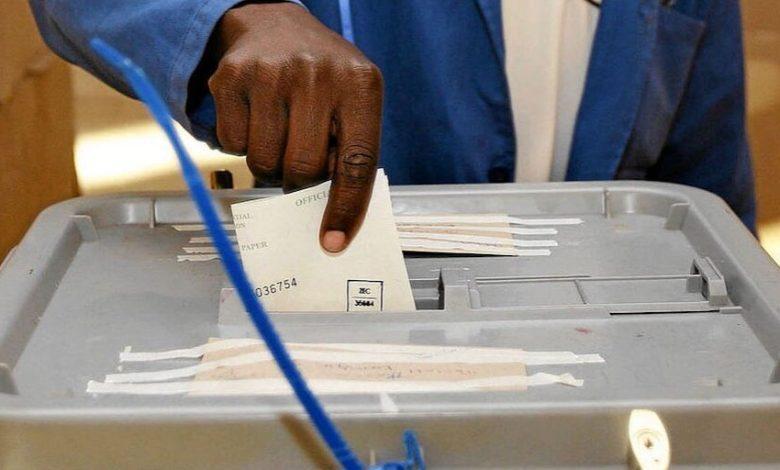Africa-Press – Tanzania. AS Tanzania approaches its eagerly awaited General election on October 29, 2025, the spotlight shifts to the country’s dynamic and youthful populace, which comprises a staggering 77 per cent under the age of 35.
This upcoming election is not just a political event, it is an opportunity for the youth to emerge as ambassadors of peace, advocating for stability and unity in a time when political manipulation threatens to disrupt the democratic process.
The Independent National Electoral Commission (INEC) has already confirmed that over 37.65 million Tanzanians have registered to vote, marking a significant increase from the previous electoral cycle.
Among these, a large segment consists of first-time voters who are poised to shape the future of Tanzania’s democracy.
With the national conversation increasingly centred on peaceful elections, young leaders, students and civil society actors are uniting to send a resounding message: “Peaceful elections.”
In embracing civic responsibility, William Charles, a third-year student at the University of Dodoma (UDOM), encapsulated the burgeoning enthusiasm among youth as they prepare to participate in the crucial elections.
“The growing enthusiasm among first-time voters’ points to a promising future for Tanzanian democracy, especially if the entire process remains peaceful,” he stated adding: “This perspective underscores a collective readiness to engage in civic discourse, scrutinising leadership opportunities and participating in nation-building through the act of voting.
In the eyes of many young Tanzanians, including UDOM student Everlyne James, participating in the electoral process is synonymous with maturity.
“Our willingness to engage in national issues reflects a maturing citizenry that respects peace,” she articulated, reinforcing the notion that youth involvement is vital not only for personal empowerment but also for the broader national interest.
As passionate advocates for peace, these young voters are gearing up to play an important role in ensuring that the electoral process is not marred by violence or discord.
Ideally, their voices echo the need for integrity and harmony, essential pillars for building a stable society.
The climate during election season is often charged with political fervour and it is particularly crucial for youth to remain vigilant against potential incitement from opportunistic politicians.
Rhoda Samson, a 20-yearold voter, expressed her excitement about voting for the first time, emphasising the need for collective peace.
“Attaining voting age is something I have long awaited. I now have a chance to make my voice count in choosing leaders who will represent us at the national, regional and ward levels,” she shared at Dodoma’s Nyerere Square grounds.
Rhoda’s sentiments resonate with many young voters who yearn for a peaceful process allowing them to focus on education and personal development, rather than being engulfed in conflict.
“Peaceful elections mean we can pursue our dreams and contribute to national development… I want to see all Tanzanians from both sides of the union move forward together,” she added, a poignant reminder that peace benefits all citizens.
Equally, the role of civil society in galvanising youth towards peace cannot be overstated. Annastazia Rugaba, a development and democracy analyst with Twaweza East Africa, emphasises the importance of youth engagement in fostering inclusivity within political leadership.
She cautions against being drawn into divisive rhetoric, urging the younger generation to promote unity and constructive dialogue instead.
Furthermore, leaders like former Dar es Salaam University Students’ Organisation (DARUSO) President Noel Mtafya stresses the necessity of choosing candidates who embody the values of unity, peace and solidarity.
“It is crucial that we elect leaders who understand our challenges and are committed to maintaining our national identity,”
Mtafya noted, accentuating the responsibility bestowed on young voters to make informed choices that benefit the entire nation.
As the election approaches, Dr Paul Loisulie, a political analyst and lecturer at UDOM, emphasises that Tanzania’s future hinges on the development of peaceful leadership.
“The country needs leaders who care about the people and are committed to pushing development forward while preserving unity,” he asserts, reinforcing the call for leaders who prioritise the collective good over divisive politics.
In preparation for the upcoming elections, young leaders and students are mobilising campaigns focused on civic education and the importance of peaceful participation.
They are leveraging social media and grassroots movements to spread awareness about the electoral process, engage their peers and build a culture of peace.
However, the call to action is clear, even as Tanzania stands on the brink of a significant electoral milestone.
The youth must be proactive in advocating for peace, rejecting political manipulation and embodying the spirit of unity.
With their vibrant voices fuelled by hope and vision, young Tanzanians are uniquely positioned to influence the democratic landscape for generations to come.
According to political pundits, at this critical moment, as the youth prepare to cast their votes, they are not just participants in an election; they are essential architects of a peaceful and prosperous future.
The challenge now lies in their hands: To foster an environment where democracy thrives, devoid of discord, as the country takes a bold step forward into its electoral future.
For More News And Analysis About Tanzania Follow Africa-Press







